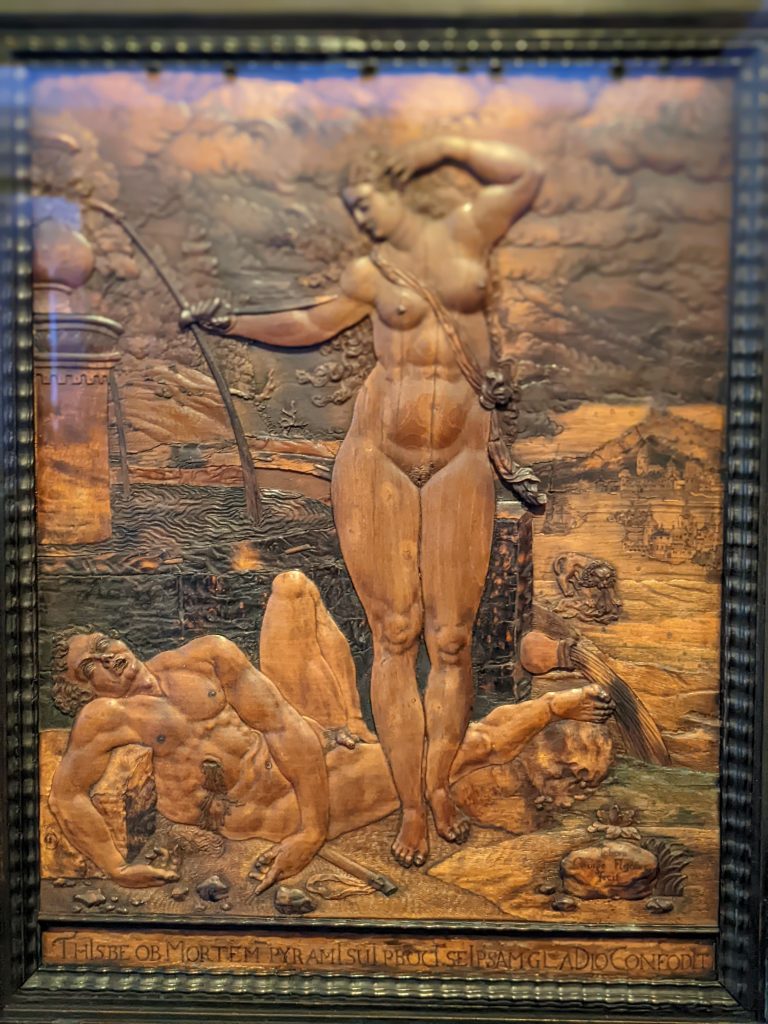Much of our humanity consists of stories that speak of tragedy, misfortune, conflict, deep emotions, or humor. Here is an ancient story that originates from Babylon. The accompanying picture, see below, is a wood relief from Dresden, 1656, created by Johann Georg Fischer.
Pyramus and Thisbe are lovers who ran into really bad luck. The story forms part of Ovid‘s Metamorphoses. It has been retold many times by different authors.
Pyramus and Thisbe are two lovers in the city of Babylon. They live in neighboring houses, but their respective parents, driven by rivalry, forbid them to become a couple. Through a crack in a wall they talk and confess their love to each other. They arrange to meet near a tomb under a mulberry tree.
Thisbe arrives first, but she sees a lioness with a bloody mouth from a recent kill, so she flees, leaving behind her cloak. When Pyramus arrives, he is horrified at the sight of Thisbe’s cloak: the lioness had torn it and left traces of blood on it.
Pyramus assumes that a wild beast has killed her, and he succumbs to his pain: he kills himself by falling on his sword, which is a typical Babylonian way to commit suicide. Dying, his blood splashes all over the white mulberry leaves. Pyramus’s blood also stains the white mulberry fruits, turning them dark.
Thisbe returns, and she wants to tell Pyramus what had happened to her. She finds Pyramus’s dead body under the shade of the mulberry tree. After praying to their parents and the gods to have them buried together, she mourns briefly, then stabs herself with the same sword.
In the end, the gods listen to Thisbe’s prayers, and forever change the color of the mulberry fruits into a stained dark-red color to honor forbidden love.
Pyramus and Thisbe proved to be faithful lovers to each other until the very end.
